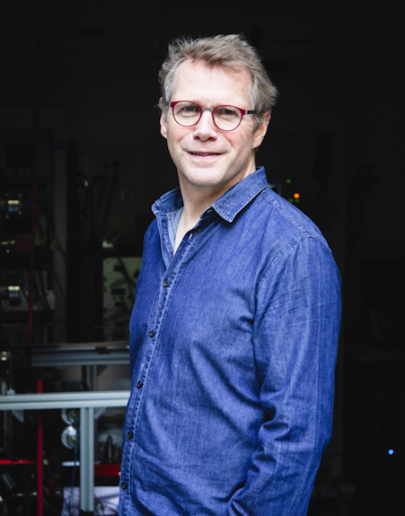Arnaud LandraginHigh-precision sensors for geoscience applications
Arnaud Landragin, who is a CNRS research professor and director of the SYRTE (Systèmes de référence temps-espace) laboratory (CNRS/Sorbonne Université/Observatoire de Paris-PSL)1 , uses the quantum principle of wave-particle duality to split an atom into two waves with a laser. Gravity modifies the propagation of these two waves, and can be measured after their recombination. The scientist uses this to design cold-atom absolute gravimeters, which are sold by Muquans, the company he co-founded. He also simplified these systems with a pyramid reflector, a series of mirrors that allow just two lasers to perform the tasks of six. These devices have applications in the measurement of acceleration and gravitational fields, and, through their impact on local gravity, the probing of fluids and materials present underground. "I have always tried to transfer even my most basic results," stresses the researcher, thanks to whom the French scientific community is very well positioned in the field of "quantum sensing", with the challenge of developing, within the next decade, a new generation of sensors that fully exploit the properties of entanglement offered by quantum physics.
- 1The SYRTE laboratory also has close ties with the LNE.
